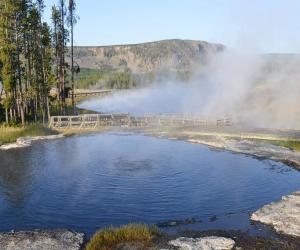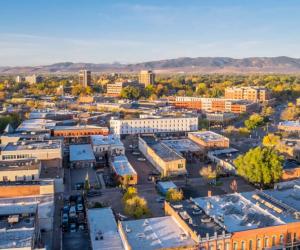The 6 Most Educated Places in Alabama
With education, one can do many things. It is something valuable that can get you far in life. Over time, people have ensured that continuing education is key to life’s success. That is why politicians should be educated on economics, history, and government. That’s why you’re required to have a background in education to become a teacher. Usually, these careers require at least a bachelor’s degree. Currently, however, around 35% of people 25 or older have bachelor’s degrees in the United States. Only 13% of those aged 25 and above have master’s degrees and 2% of the population have doctorate degrees.
When it comes to Alabama, what are the statistics there? Let’s take a look at the six most educated places in Alabama. We will look at the counties that have a bachelor’s degree or higher.
1. Shelby County
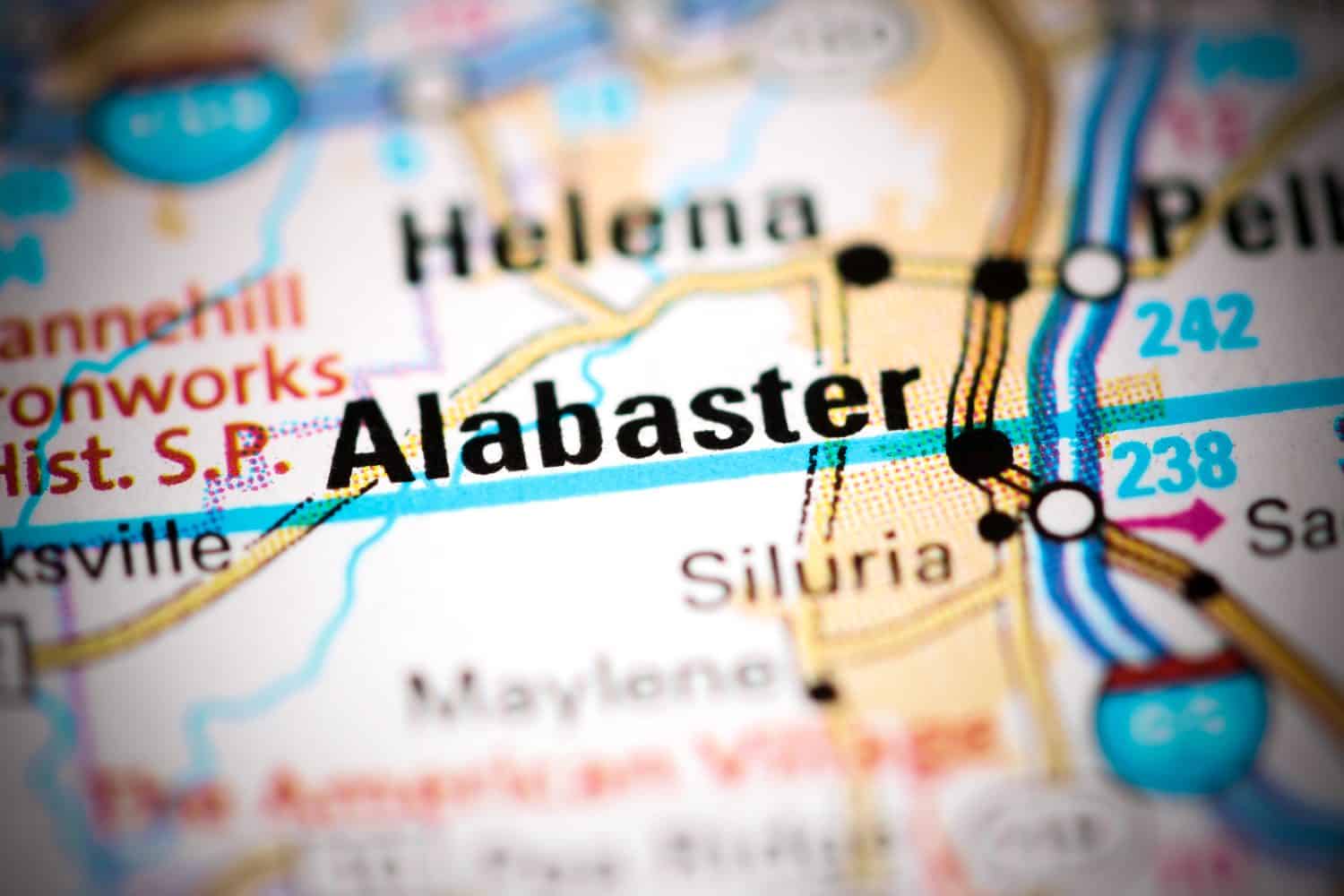
Shelby County is named after the first Governor of Kentucky and war hero of the American Revolution, Isaac Shelby.
©SevenMaps/Shutterstock.com
With a population of 223,000 people, Shelby County has 67,000 people with a bachelor’s degree or higher. That cipher lowers to 16,000 for those with master’s degrees or above. The number of people with doctorate degrees lowers to only 2,000 people. Shelby County is the sixth most populous in the state of Alabama. Shelby County Schools is the public school system that operates in the county, however, Alabaster City Schools operates the schools within the city of Alabaster.
2. Madison County
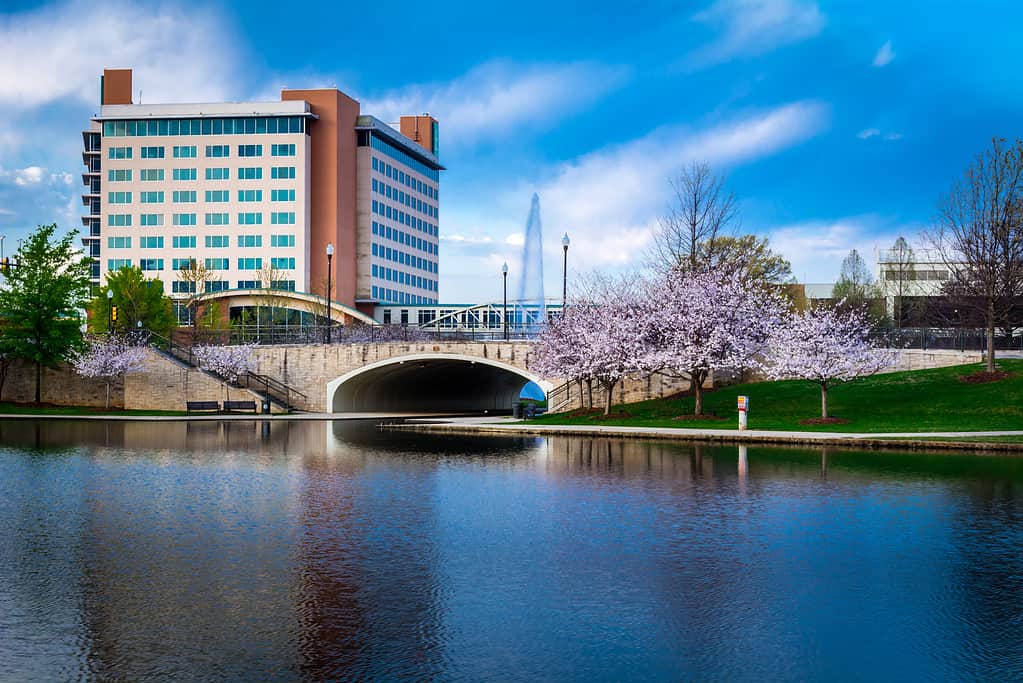
Madison County is named after the 4th President of the United States, James Madison.
©James Deitsch/iStock via Getty Images
With 388,000 people in Madison County, it is the third most populous in the state of Alabama. Madison County has a huge defense and space research hub, which means that there are a lot of tech and science graduates living in Madison County. Approximately 116,000 people are living with a bachelor’s degree or higher, 35,000 people with a master’s degree or higher, and only 5,600 people with a doctorate. Madison County is home to Alabama A&M University and the historically black college of J.F. Drake State Community and Technical College.
3. Jefferson County
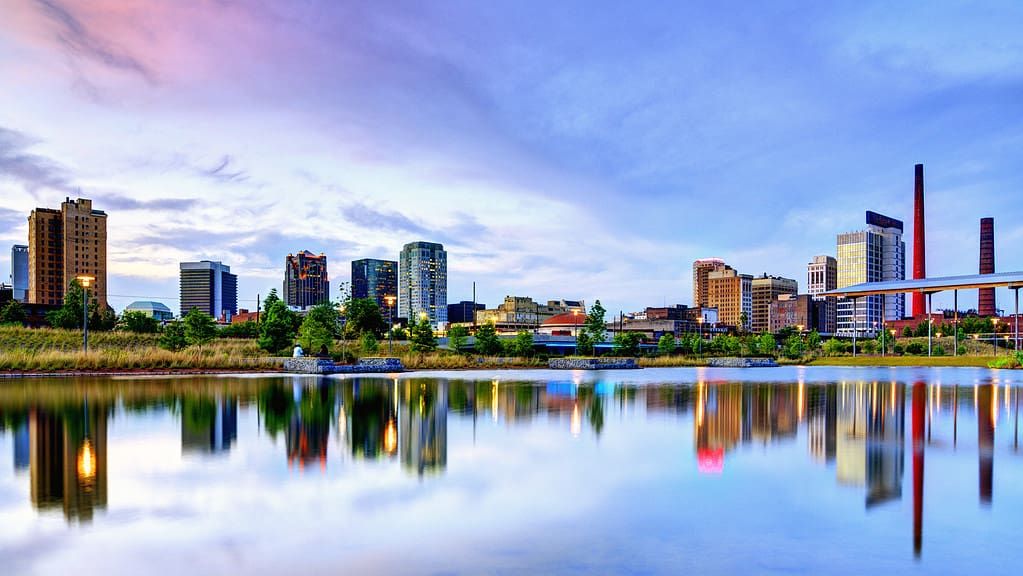
Jefferson County is named after the 3rd President of the United States, Thomas Jefferson.
©SeanPavonePhoto/iStock via Getty Images
With 674,000 people, Jefferson County is the most populous in the state of Alabama. When it comes to people with bachelor’s degrees or higher, that number comes to 159,000, placing it at number one in the state (in terms of people). That number goes down to 38,000 for those with master’s degrees or higher, and it’s even lower for those with doctorate degrees. There are many universities and colleges in Jefferson County, specifically in Birmingham including the University of Alabama at Birmingham, which is considered a Tier 1 national university.
4. Lee County
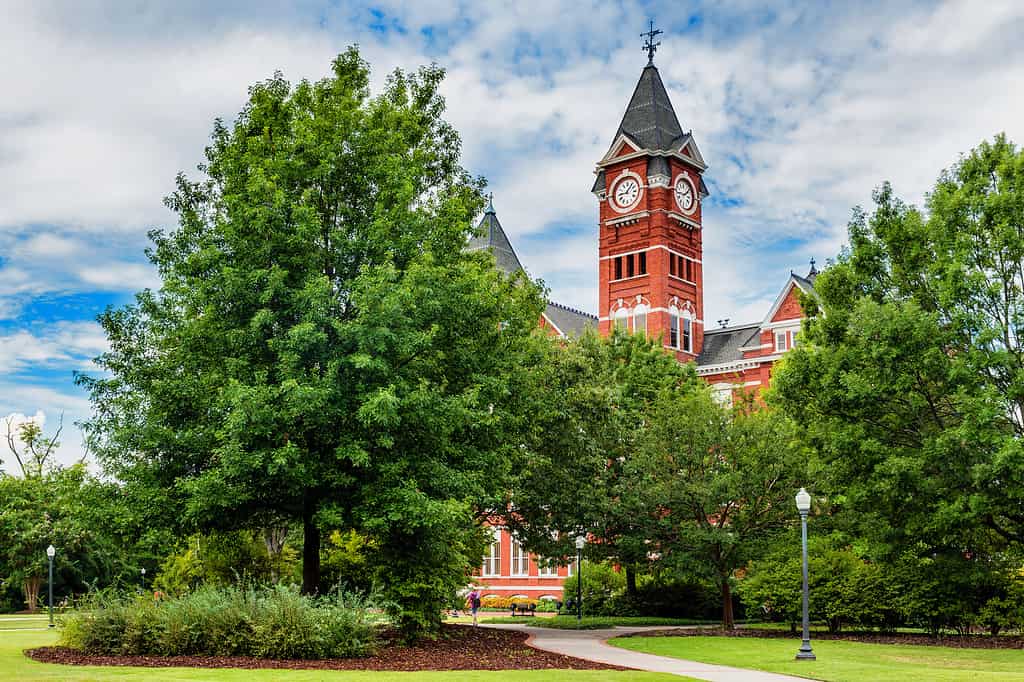
Confederate General Robert E. Lee is Lee County’s namesake.
©RobHainer/iStock via Getty Images
With a population of 174,000 people, Lee County is located in central-east Alabama. About 40,000 people have bachelor’s degrees or higher. That cipher lowers to 13,000 people with master’s degrees or higher, and it’s even lower for those with doctorates. Auburn University, which is considered a Tier 1 national university, is located in Lee County, as well as the technical college, Southern Union State Community College.
5. Montgomery County
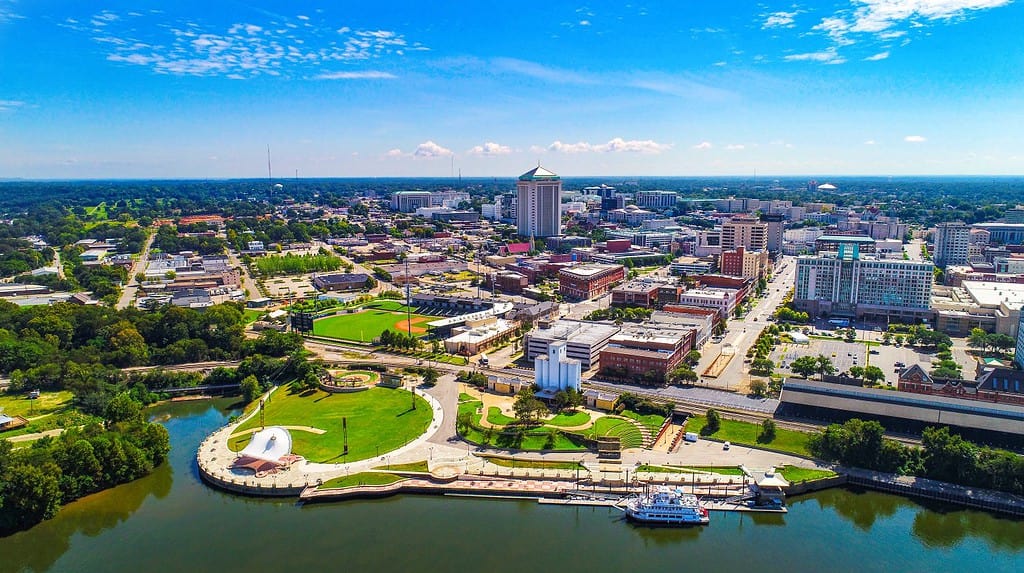
Montgomery County is named after a soldier killed during the Creek Indian War, Lemuel Montgomery.
©Kevin Ruck/Shutterstock.com
With a population of 228,000 people, Montgomery County is the seventh most populous in the state of Alabama. It is also where the state’s capital, Montgomery, is located. When it comes to those with bachelor’s degrees or higher, there are 50,000 people. That cipher lowers to 15,000 with those that have master’s degrees, and it’s even lower with those that have doctorate degrees. There are numerous universities located in Montgomery College, including Faulkner University, Huntingdon College, and the historically black university, Alabama State University.
6. Tuscaloosa County
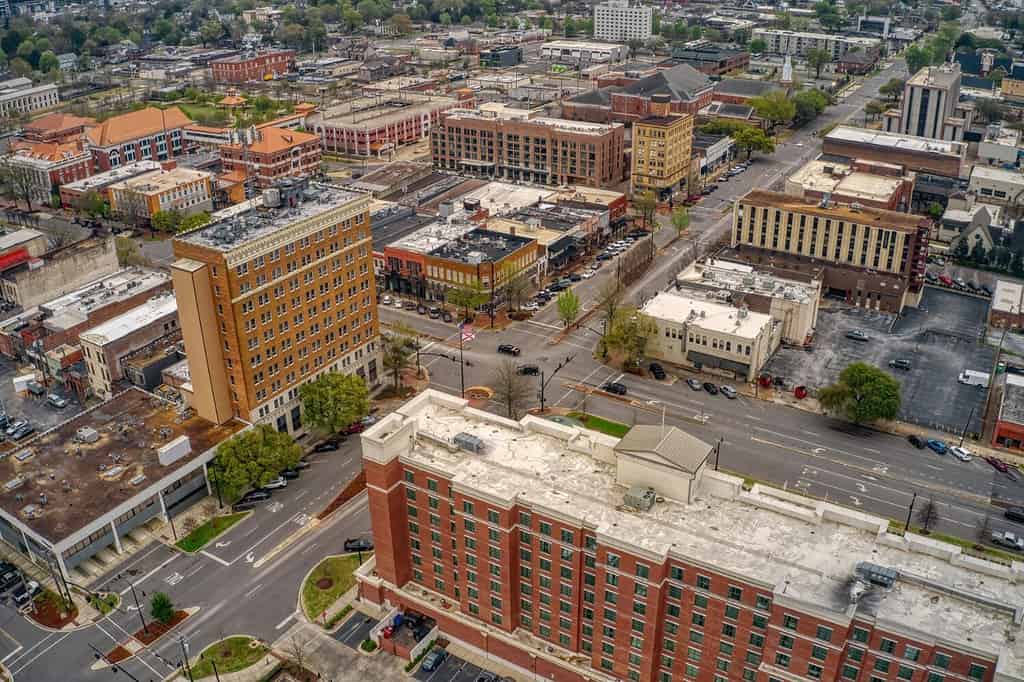
Tuscaloosa County is named after the Mississippian native tribal chief, Tuskaloosa.
©Jacob Boomsma/Shutterstock.com
With a population of 227,000 people, Tuscaloosa County is the fifth most populated in the state of Alabama. There are 43,000 people with bachelor’s degrees or higher, almost 12,000 people with master’s degrees or higher, and nearly 4,000 people with doctorate degrees. Located in Tuscaloosa County are Stillman College, which is a historically black college, and the University of Alabama, as well as Shelton State Community College.
Conclusion
And there you have it, these are the six most educated places in Alabama. More educated people are usually living in the big cities or university towns. The reason is that there is a host of diversity in these places that make it a perfect mixture of people with educated backgrounds, as well as experienced, non-educated backgrounds. As time passes, however, more and more people will pursue bachelor’s degrees and master’s degrees because of the competitive nature of the 21st century.
The photo featured at the top of this post is © Bennian/Shutterstock.com







